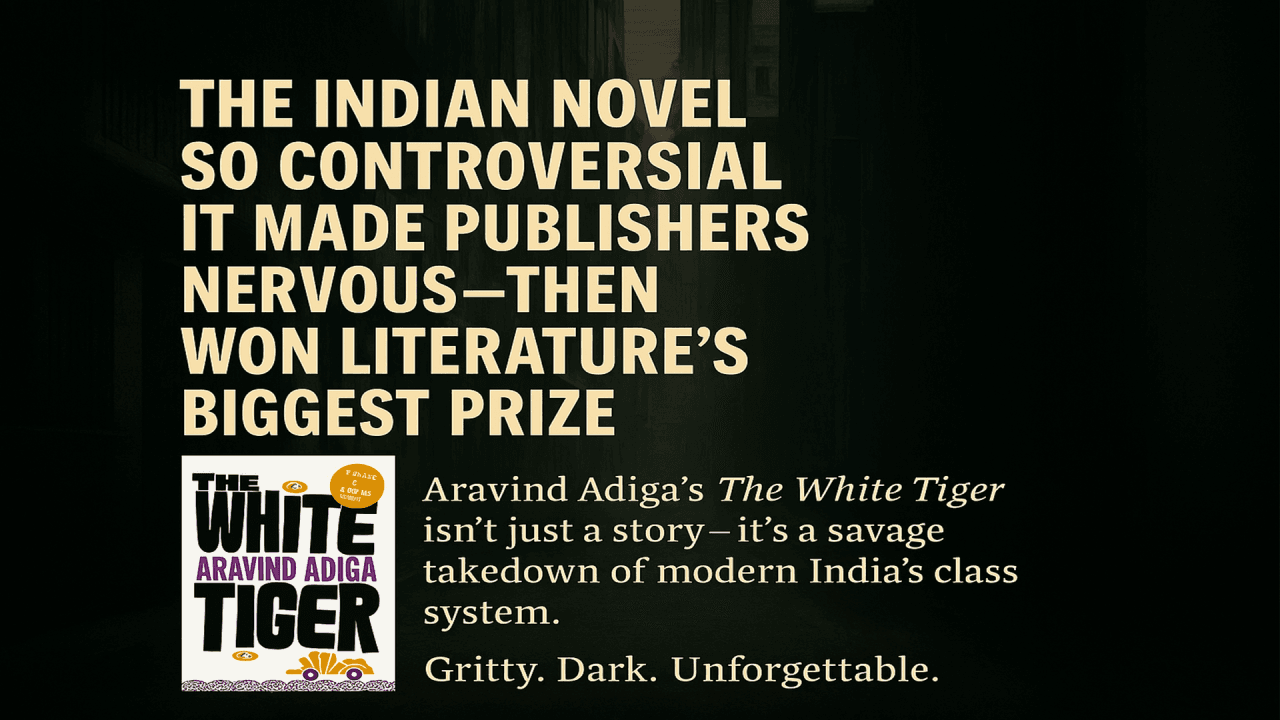Why Aravind Adiga's brutal masterpiece is the most important novel you'll read about modern India
The Story That Made Publishers Nervous
In 2008, a debut novelist from Chennai did something unprecedented: he told the truth about India's economic miracle. "The White Tiger" didn't just win the Man Booker Prize—it shattered every comfortable myth about India's rise to global prominence.
Meet Balram Halwai, a chauffeur-turned-entrepreneur whose journey from the "Darkness" of rural India to the "Light" of Delhi and Bangalore will haunt you long after the final page. This isn't your typical rags-to-riches story. It's a visceral, darkly comic confession that reads like a love letter written in blood.
Why This Book Sparked International Controversy
Adiga's unflinching portrayal of India's underbelly sent shockwaves through literary circles:
The Caste System Exposed: Through Balram's eyes, we witness how ancient hierarchies persist in modern India, crushing dreams and perpetuating cycles of servitude that no amount of economic growth can break.
Corruption as Survival: The novel reveals how corruption isn't just a problem—it's a way of life, a survival mechanism in a system designed to keep the poor in perpetual darkness.
The Servant's Revenge: Balram's transformation from obedient driver to ruthless businessman forces readers to confront uncomfortable questions about justice, morality, and the price of freedom.
The Voice That Changes Everything
What makes "The White Tiger" extraordinary isn't just its story—it's how Adiga tells it. Written as a series of letters to Chinese Premier Wen Jiabao, Balram's narrative voice is:
- Sardonic and self-aware: He knows he's a murderer, but he's also hilariously honest about it
- Culturally bilingual: Seamlessly weaving Hindi phrases with English, creating an authentic voice that bridges worlds
- Politically sharp: Every observation cuts deep, revealing the absurdities and injustices of modern India
"I was looking for the key for years, but the door was always open." This single line encapsulates the novel's devastating insight into opportunity and oppression.
Beyond the Booker: Cultural Impact
Netflix Adaptation: The 2021 film brought Balram's story to global audiences, earning Oscar nominations and renewed international attention.
Academic Adoption: Universities worldwide now teach this novel as essential reading for understanding contemporary India and postcolonial literature.
Political Discourse: The book continues to influence discussions about inequality, development, and social justice in emerging economies.
The Bigger Picture
"The White Tiger" isn't just about India—it's about the human condition in an unequal world. Adiga has created a character who embodies the contradictions of our time: victim and perpetrator, servant and master, traditional and modern.
The novel asks the question that haunts our era: In a world built on exploitation, what does it mean to be free? And what are we willing to sacrifice—morally, spiritually, relationally—to achieve that freedom?
Start Your Journey
Don't just read "The White Tiger"—experience it. Join the millions who have discovered why this provocative masterpiece continues to spark debates, inspire adaptations, and challenge readers more than fifteen years after its publication.
Your next great read awaits. The only question is: Are you ready for the truth?
Have you read "The White Tiger"? What did you think of Balram's transformation? Share your thoughts and join the conversation about one of the most important novels of the 21st century.

